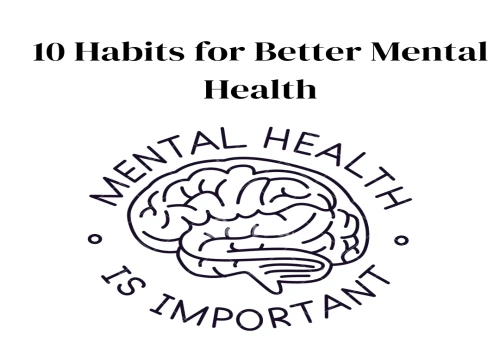
Sex is an essential part of many people's relationships, but with significant life changes, some people experience a decrease in desire.
According to the National Health Service, women's desire for sex decreases after pregnancy and childbirth.
British reality TV star and fitness coach Holly Hagan-Blyth says this is exactly what happened to her after the birth of her son.
While co-hosting CBeebies' Parenting Helpline programming, Blyth explained her experience, saying, "I thought, 'Look, it doesn't matter if you don't touch me.' That's exactly what I was feeling at the time."
Sex and relationship therapist Rachel Gold says that women often feel they need to be intimate again six months after giving birth.
She says, "I think this can be deceptive. They think this is the right time for sex. But that's not true."
Distance in a relationship
Rachel says that relationships are not the same for every couple. Holly explained that after the birth of her son, Alpha-Jax, in 2023, her sex drive decreased significantly and she began avoiding any kind of intimacy.
She says, "Whenever I expressed affection to my husband, Jacob, touched him, or hugged him, he felt like he would take it the other way. But I didn't want to have sex."
"I started viewing every such advance from my husband negatively." Holly says that speaking openly has been helpful.
According to her, "I started expressing how I was feeling. I started saying, 'Whenever I hug you or touch you, we shouldn't push it further, because it makes me want to move on and pull away.' It made things better because the pressure was off."
But her husband, Jacob, began to fear that Holly might not like him anymore. Holly said, "I explained to my husband, 'You have to understand that this has nothing to do with you. I'm feeling this way right now, but my feelings for you haven't changed at all.'"
I said, "I don't feel like having sex right now, and I probably won't for the next few months. I'm going through this right now. I have to get through it myself."
Holly wants couples facing similar situations to talk openly about it. She says, "People say that relationships change after having a baby, but the reality is only realized when you're going through it yourself."
What Experts Say
Obstetrician and gynecologist Dr. Jennifer Lincoln says there are many reasons why women may not feel like having sex after childbirth.
She explains, "The body needs a lot of recovery after delivery. It takes about six weeks for the uterus to return to its normal state. Injuries to the vagina or perineum also heal slowly." In addition, women experience significant hormonal changes during this time. These changes can also affect their sexual desire.
She said, "In such a situation, the levels of hormones like estrogen and progesterone in women's bodies suddenly drop. This lack of estrogen can cause physical changes. This can lead to vaginal dryness, which can cause pain during sex."
Dr. Jennifer Lincoln says, "People generally think that rapid changes in hormonal levels in women are due to menopause. But in reality, these changes are most pronounced in the days around childbirth."
Professional Advice
The impact isn't limited to women who are expecting. Frankie, who became a mother three months ago, is a listener to CBeebies' Parenting Helpline. She says her partner withdrew from sex during that time.
She says, "Right now, I hate my body. I just want my partner to pay a little more attention to me. But now he's not interested in sex. I feel awkward."
Therapist Rachel Gold says that men sometimes struggle to express their feelings. According to her, "With the onset of parenthood, many feelings of responsibility can emerge in men. This can be a major reason for their decreased interest in sex."
Fleur Parker, from the childbirth charity NCT, says that dealing with these feelings isn't typically a priority for men. She says, "It can be helpful to talk openly with your partner about how you feel. Don't assume they know what's going on or what's going on in your mind."
Jennifer recommends that couples going through difficulties seek help. She says, "Some new parents adapt easily, knowing that intimacy will return naturally, while others experience significant stress."
She says, "If it's causing serious stress in the relationship, I would recommend seeking professional help, whether it's couples counseling, sex therapy, or getting evaluated for any persistent physical problems."
Some important advice from experts
Normalizing a lack of sexual desire is essential. Understanding that it's completely normal and not just a mental condition reduces the need to look for other reasons and the feeling of pressure.
* Women going through such changes should be patient with their bodies' natural healing process.
* Be open with your partner about your needs and expectations.
* Partners can greatly support each other by temporarily renewing intimacy, focusing on emotional connection, and engaging in non-sexual touch.
* This can also include sharing responsibilities like housework and childcare to reduce stress.
These suggestions are provided by Dr. Jennifer Lincoln. More information on this topic is also available on the NHS website.
- Originally written by Emily Holt (BBC)












